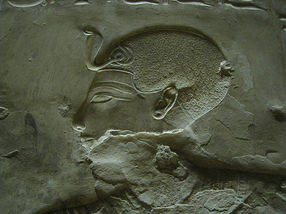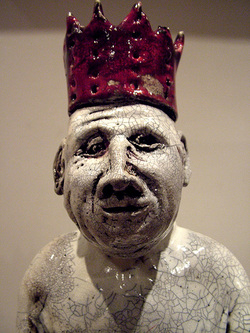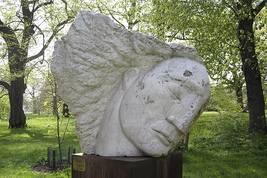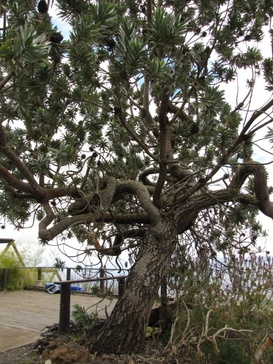 Chapel Window/Mike M I have great respect for all who sit through worship hour on Sundays at my Unitarian Universalist church, even the ministers on the chancel waiting to address the diverse, sometimes contentious congregation. I am sitting too, with an open journal in my lap and a pen in hand. I am not one to conceal the ear buds of my smart phone. I won’t listen to podcasts of dharma talks in service because I don’t want to miss Reiko at the organ, the choir, the bell chorus chiming out its melodies or the musicians we sometimes hire to play interesting or unfamiliar instruments. Because I am about to complain, you have every right to wonder why I don’t just stay home that one hour on Sunday. I’m there many other days of the week with commitments and committees. Of course, like others, I go to service with my own needs, preferences and mindsets. Right now my mind is set on compassion, with seeing through duality to the interconnection between all beings, which I believe is not only possible, but already actual. Do I hope for too much if I wish to be challenged to try to be kinder, to try to see someone else’s point of view, in short, to move beyond us and them to “the interdependent web of all existence of which we are a part?” For the rest of the week, I will be awash in rhetoric from the left and from the right, some subtle, some stupid, but always polarizing, always “us against them.” I am not keen to hear my ministers congratulate me for being on the right side of some social issue. If there is a right side, there is a wrong side. And because every issue has to be espoused or defended by someone, we now have those who hold wrong beliefs as opposed to right beliefs, and if we congratulate ourselves for being right, where does that leave those others? In a polarized society, those others will not be understood, at least not by us. We will be congratulating ourselves for being pro-choice or pro-recycling and composting. And while we call ourselves an embracing community, our arms are mostly open to those who think like us, vote like us, march where we march, occupy when we do, and support our values. Of course, we love strangers, at least in the abstract. And we love each other, though sometimes just as abstractly. Often we bring that “us vs. them” mentality, which is human nature, into our congregation. And this is where my dissatisfaction feels strongest with sermons that seem to reinforce the spirit of contentiousness rather than create wholeness or holiness. We do not need to agree but we do need to learn to respect and respond to each other with kindness. Then this response-ability can lead us into action. Most of us don’t need to have righteous indignation reinforced. We don’t need to be encouraged to ride our “hobby horses,” those favored social positions we believe in fervently, those truths we hold self-evident. In truth I often arrive at Sunday service feeling constricted, in pain, sorrow and fear, self-righteous and judgmental. What I want from the pulpit is not reassurance that my way is the right way but a reminder of my larger, kinder self. The late Forrest Church said: “Universalism is an exacting gospel. Taken seriously, no theology is more challenging-morally, spiritually, or intellectually: to love your enemy as yourself; to see your tears in another's eyes; to respect and even embrace otherness, rather than merely to tolerate or, even worse, dismiss it. None of this comes naturally to us. We are weaned on the rational presumption that if two people disagree, only one can be right.”* My idea of what I should do or be isn’t complicated. I think I should be open minded, open hearted and open to growing my capacity to love. And I do realize the ministers in my church are among those I need to “attend and befriend,” as Tara Brach puts it in a Buddhist teaching talk. As I struggle to see beyond duality, I remember the Buddhist monk, Thich Nhat Hanh’s poem, “Please Call Me by My True Names.” He challenges me to experience the allness of each as he writes: “I am the child in Uganda, all skin and bones, my legs as thin as bamboo sticks; and I am the arms merchant, selling deadly weapons to Uganda. “I am the twelve-year-old girl, refugee on a small boat, who throws herself into the ocean after being raped by a sea pirate; and I am the pirate, my heart not yet capable of seeing and loving.” He ends by imploring: “Please call me by my true names, so I can wake up and so the door of my heart can be left open, the door of compassion.” Only one of my true names is Unitarian Universalist. Will I wake up somewhere else? Church could be one place the door of my heart opens to all beings. *From “Universalism: A Theology for the 21st Century,” UU World. Nov./Dec. 2001 ( http://www.uuworld.org/2001/05/feature1.html)
 Ear/saragoldsmith It is practically blasphemy not to listen to another. Even so, here is a short-list of communications that are hard for me to hear with the ear of the heart, as Saint Benedict puts it. Preachy advice, budget reports, mixed messages, and lengthy recitals that begin in dialogue but drone on into monologue.
My one-word comeback in all cases used to be “Huh?” But more aware now that I live in a universe where so many things are speaking on so many levels, I’ve decided it is probably unwise to ignore voices, no matter how irksome, because they may bear wisdom.
According to Dr. Rachel Naomi Remen, “Listening creates a holy silence. When you listen generously to people, they can hear the truth in themselves, often for the first time. And in
the silence of listening, you can know yourself in everyone. Eventually you may be able to hear, in everyone and beyond everyone,
the unseen singing softly to itself and to you.” **
In Small Group Ministry, at the San Francisco Unitarian Universalist church, I trained to listen in silence and to encourage new group members to listen the same way. At first I found paying silent attention difficult, for it went against a lifetime of habits I had learned to incorporate as a social being – nod, sigh, “oh” and “ah.” While not tempted to interrupt, I did want to ask questions. And being a “good person,” I would sometimes think I should offer help or advice. Although being a silent listener or being listened to in silence can feel hard, it is worth exploring because “cue-less” listening allows the speaker to go deeply into her own thoughts without watching for cues that her words are winning approval or causing disapproval. As I said, not easy at first, but at the heart of silent listening is trust that one is heard and courage to speak one’s truth.
As a Worship Associate in my church, I gave a four-minute reflection called “Listening with the Third Ear.” Eventually I expanded that talk into a sermon I gave at the Petaluma UU Fellowship. Speaking for more than four minutes allowed me to add more ears and call my talk “Four More Ears.”
My third ear corresponds to “The Third Eye” – the ear of the heart that hears the heartfelt. It’s the third ear in which resonate Paul Tillich’s words: “The first duty of love is to listen.” And these words from David Oxberg: “Being listened to is so close to being loved that most people cannot tell the difference.”
As for the fourth ear, I am not sure all people need it. For me, it’s a cautionary ear because some information may be just that and not a clue to a deep truth. Thus the work of the fourth ear is to redirect information that is just information back to ears one and two.
My fifth ear turns inward and operates in the pause that allows a reaction to become a response. It listens for the sound of childhood pain that once would have been a cry but with language has turned into something else, usually cruel and instant. When I can hear my own pain and identify it as from the past, I can acknowledge it without reacting and continue to fully hear the other person.
My sixth ear is another ear turned inward. It listens for stories I’m telling myself about the other person and prevents speech I might regret later. One of the reasons I try not to listen from story is that I know how it feels to be responded to from the story rather than in that moment. Once, a friend decided that I suffered from low self-esteem. Thus whatever I said, she responded with words of reassurance. Rather than feeling better, I felt irritated, annoyed and alone. We’re no longer friends.
When I think about being fully present with others, all ears operational, I include the clerk at the DMV, the men and women I meet on the streets and, of course those closest to me, the ones it’s often really hard to listen to. Choosing to relate this way means accepting a total person, not picking and choosing aspects that suit me, hoping over time to change the parts I don’t like.
Listening to the whole person becomes a holy act. “Our listening creates sanctuary for
the homeless parts within the other person. That which has been denied,
unloved, devalued by themselves and others. That which is hidden.”**
* “Music makes an altar out of our ears. A single struck tone, a note blown from a flute, can flush the body with goodness.” W. A. Mathieu, Sufi musician in The Musical Life.
** Dr. Rachel Naomi Remen is Clinical Professor of Family and Community Medicine at the UCSF School of Medicine and Director of the innovative UCSF course The Healer's Art, which was recently featured in US News & World Report. She is Founder and Director of the Institute for the Study of Health and Illness, a ten-year-old professional development program for graduate physicians. She is the author of the New York Times bestseller Kitchen Table Wisdom: Stories That Heal. Her newest book, My Grandfather's Blessings: Stories of Strength, Refuge and Belonging is a national bestseller.
 Sitting Man in Red Hat / Andrew Hill “The man in the red hat is not in charge” sounds like the title for someone’s musings. I’d be wise to use it before it’s registered with GoDaddy.com and becomes a web site.
The man in the red hat who is not in charge could have been the man in the red hat Saturday morning. Though not in charge, he popped up from his chair again and again to issue orders and to protest the inequity of a food distribution lottery system that has number 345 heading toward the food line well ahead of him, and he (who arrived early) holds number 47.
The mornings I assist at Old First Presbyterian Church staffing the Food Bank distribution to hundreds and hundreds of mostly Asian women, I leave exhausted; my mind awash in cultural stereotyping and colonialist sentiment.
As the man in the red hat charges toward the table where sit the volunteers, the loudest among us pleads with him and the other surging clients, “Please sit down.” As the morning wears on and the crowd of more than 300 repeatedly surges forward, the loudest voice among us resorts to chanting: “Sit down, sit down, sit down.” No one seems to understand, for certainly no one sits down.
When we are lucky, we have a Cantonese speaking 12-year old calling numbers, but often we make do with the loudest among us and a microphone. As “chalk mistress,” my work is to help Food Bank clients understand when it is their turn by writing numbers on a chalkboard as they are called over the handheld mike. I am not authorized to suggest a system that incorporates the times that people arrive into the lottery process.
I admit to experiencing irritation that none of us, myself included, has tried to learn one word of Cantonese and none of our clients seems to have picked up on such basic phrases as “Please show your ID” and “Stand in line, please.”
After a year of Saturdays, I have not been interested in learning why some cultures crowd and others willingly line up. I don’t want to hear stories some try to tell me about clients who receive “free” food and sell it, though I, myself, have not seen that happen. I don’t want such stereotypes to keep me constricted and not free to experience individuals like the man in the red hat.
But I do want to learn from wisdom traditions how to relate to the man in the red hat in a way that is empowering and acknowledges his inherent worth and dignity. Tara Brach calls such learning “the freedom to be who we are.” I will always observe behavior that baffles me; I can’t change cultural conditioning or what motivates my own compatriots to behave as they do. But when I acknowledge to myself all that I experience and feel, without pushing away unpleasant thoughts and experiences or grasping at the pleasant to make them last longer, I can see what is happening and know this is the way it is right now.
Having admitted to myself that I am finding this food distribution mission an unpleasant chore as well as a feel-good, do-good opportunity, I am free to be with all parts of my experience and use that spaciousness to inform my responses. I get to choose to whom or even if I will express frustration and negativity.
In the past, as part of my “self-improvement project” I felt obligated to push away insensitive thoughts, to be always on guard against judgments and negative stereotyping, to apply correct pronouns in all cases, in short to “be” a person I could accept and like.
But as I learn what it really means to be free, I realize I do not need to be without error or politically incorrect thoughts. True freedom is choosing not to shape, contort, or present myself to be what I think the world wants. Instead, I want to acknowledge my experience and thoughts, and then pause, as Tara puts it, to choose from kindness what to say, whom to say it to and when to say it. By accepting my limitations and not judging myself, I become kindness.
The man in the red hat is not in charge and neither am I. It is what it is.
 Wounded Angel I / Emily Young 2003 It had been my habit to apply black or brown eyeliner. But since February 2011, eyeliner is no longer part of the face I prepare to meet the faces that I meet, to paraphrase J. Alfred Prufrock.
It’s not newly acquired beauty expertise that has me leaving off the eyeliner. It has more to do with crying, which causes made up eyes to sting and leaves cheeks streaked and smudged.
In the last year there have been special reasons for tears – a son whose wife is suddenly deceased leaving him with a four-year-old daughter, another son leaving his wife to make a connection on the east coast, and my own exit from a long-term relationship. Now add Jennifer, a therapist who encourages not masking past pain; keeping my eyes dry appears impossible.
I wonder if the Buddha wept as he realized that pain is inevitable, but suffering is optional. Stretching to accept such truth, I try to be at peace with present and past pain, through which I can yet become what Rumi calls “a mighty kindness.”
Often I turn to Rumi for truth shaped like a poem. In “Not Here,” in praise of the “broken-open place,” Rumi talks of human woundedness.
There's courage involved if you want to become truth.
There is a broken-open place in a lover.
Where are those qualities of bravery and sharp compassion?
What's the use of old and frozen thought?
I want a howling hurt.
This is not a treasury where gold is stored; this is for copper.
We alchemists look for talent that can heat up and change.
Lukewarm won't do.
Halfhearted holding back, well-enough getting by?
Not here.
Reading Rumi on couragously wanting “a howling hurt,” I heard again my therapist, Jennifer, praise me for being willing to befriend my pain. As a practiced deflector of praise, I was quick to dismiss my sorry tears and suggest that some might say “attending and befriending” myself was narcissistic.
But even before being beset by family tragedies, I had chosen to be in therapy. My plan was a quick fix, an emotional realignment so I could enjoy my girlfriend on a cruise to Mexico. The therapist, however, didn't think I needed fixing, despite how explicit I was about what wasn’t working. So began the crying.
Month followed month, tearful session after tearful session. I re-experienced and identified with feelings about myself that went back to a childhood of disconnection. All so familiar. Meanwhile, the cruise sailed without me.
I cried my way back through a childhood in boarding schools, to painful and scarring accidents, to raging jealousies and competition within the family, and to bouts of mania and depression.
I have read and heard of so many in therapy further demoralized at re-experiencing the sadness they thought they had put behind them. And it’s no great help when waves of shame come as one considers one’s own suffering as inconsequential in the face of other’s childhood tragedies. And yet all the wisdom tells us that the best way out is always through. So on we go, facing pain.
Sometime into the second month of tearful sessions, Jennifer introduced me to John Welwood’s book Perfect Love, Imperfect Relationships and that led to turning inward to feeling my own yearning for love and disconnecting those feelings from any person. This was also a cause for pain because I had no strong memory of having been loved to yearn for. Then my friend Kate found Buddhist teacher and psychotherapist Tara Brach and we listened to podcasts recorded in Bethesda, MD and from this followed a deliberate practice of meditation, with sittings at the Zen Center in San Francisco and at the East Bay Meditation Center, as well as at my own UU church.
Once again I turn to a Rumi poem for truth. From “Childhood Friends:”
"Trust your wound to a teacher's surgery.
Flies collect on a wound. They cover it,
those flies of your self-protecting feelings,
your love for what you think is yours.
Let a Teacher wave away the flies
and put a plaster on the wound.
Don't turn your head. Keep looking
at the bandaged place. That's where
the Light enters you.
And don't believe for a moment
that you're healing yourself."
All my teachers – Jennifer, Tara, Kate, Rumi, the lecturers at meditation practice – hold up mirrors I have feared to look into, afraid to see a face I could not look at with compassion and forgiveness. Now, the light by which I see isn’t my light at all. And it isn’t the light I had expected. And in the light, I look quite all right, even without eyeliner.
 Habit at Waipoli Rd Kula, Maui/ Forest & Kim Starr I heard Jean Shinoda Bolen, M.D.* speak about social justice Friday night. The talk was a lot about trees and the people who love them and relate to them as “I-Thou” rather than “I-It”. Her recently published book Like a Tree: How Trees, Women, and
Tree People Can Save the Planet was a written response to losing a beloved tree in her yard when her neighbors complained that after they built on to their home it blocked their view and needed to come down. She told us that following many appeals, and while she was away at the United Nations World Conference on Women, the homeowners association felled the huge tree, leaving a stump in the yard. I admire her for directing her disappointment and anger at the loss of her tree into writing from the heart rather than being occupied by grievances she surely was entitled to feel when the tree became an “it” to the neighbor’s “I”. Hearing her thoughts about people and their relationship to the plant kingdom, I remembered reading Stanford professor Robert Pogue Harrison’s article “What it Means to Tend our Garden,” in which he maintains that cultivation and care comprise the essential transaction between Homo sapiens and the garden that is our world. “Our human gardens may appear to us like little openings into paradise in the midst of the fallen world, yet the fact that we must create, maintain, and care for them is the mark of the postlapsarian provenance….” Harrison goes on to say that banishment from the static Garden of Eden, which needed no mulching, no weeding, no watering, is the moment that initiated our true humanity. As has been my wont lately, I took the lessons inward to those instances of loss and uprooting that comprise being this person. Like Shinoda Bolen, rather than blame and regret what was wounding , I can choose to become what she calls a crone who doesn’t whine and get on with finding my “assignment,” the work of the heart that goes out into the world in the name of serving all beings. This care and cultivation of myself and all others fits with Harrison’s notion that the fall from the garden, that place of pre-knowing, sent us into true responsibility for all that is our world. There is such a cultivated garden in San Francisco, a man-made garden, Golden Gate Park, and within the park the arboretum where, as a docent, I learned how nature takes adversity and makes it rapturously beautiful. An example is protea, leucadendrom argenteum or silver tree. There are quite a few of them in the San Francisco Botanical Garden. When I trained in the garden, I met this tree and stroked the light-reflecting silky silver leaves. I saw how the silver-grey leaves, covered on both surfaces with thousands of tiny, soft, hairs and fringed with long white hairs gave off a silver sheen. I learned how in hot, dry weather, the leaves are at their most silver. The hairs lie flat to protect the leaves from drying out. In wet weather the hairs stand more erect to allow for free air circulation, yet still shimmer when light touches. The trees and many docent classes led me to admire the natural world that contains and causes adaptation. I felt in further awe upon learning that petal markings are not to make flowers look pretty but to serve as landing strips for pollinators, so they efficiently find their way to the nectar and continue the cycle of life which is what plants and pollinators are about. This week both Shinoda Bolen and Harrison were my pollinators. Their messages reminded me to tend the people and the earth around me, to foster an “I-Thou” relationship with the universe, to feel empathy for the neighbors who want their view more than they want the tree, and to love all that is my life, including my shadow elements that beg for attention. Add these words from Zen teacher Uchiyama: “Everything you encounter is yourself.” Thus all I meet in the world becomes a partnership between “I and Thou” because I will want to do unto myself as I do unto others. * Jean Shinoda Bolen is a psychiatrist, Jungian analyst, and an internationally known author and speaker who draws from spiritual, feminist, Jungian, medical and personal wellsprings of experience.
|





 RSS Feed
RSS Feed